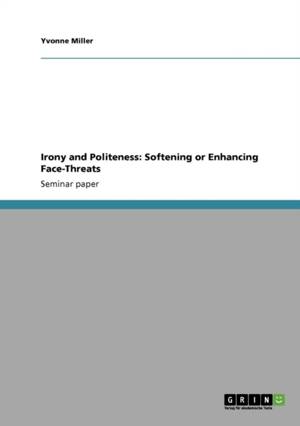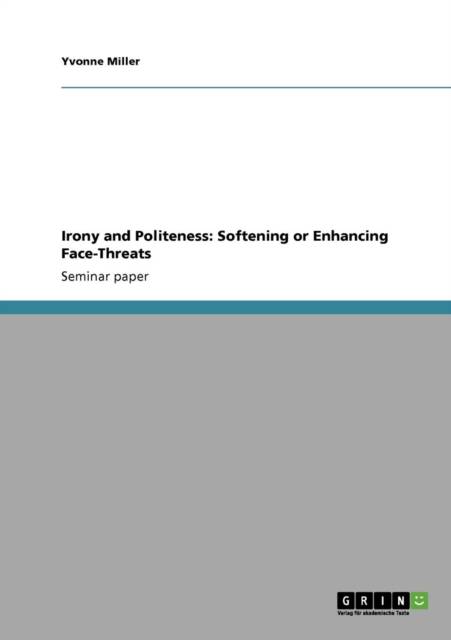
- Retrait gratuit dans votre magasin Club
- 7.000.000 titres dans notre catalogue
- Payer en toute sécurité
- Toujours un magasin près de chez vous
- Retrait gratuit dans votre magasin Club
- 7.000.0000 titres dans notre catalogue
- Payer en toute sécurité
- Toujours un magasin près de chez vous
23,45 €
+ 46 points
Description
Seminar paper from the year 2006 in the subject English Language and Literature Studies - Other, grade: 5.5, University of Zurich (English Seminar), course: Seminar zu Politeness, language: English, abstract: Irony in politeness theories was at first considered as a tool to save the face of the addressee, but later research challenged this view as will be shown in this paper. The use of irony can easily become a tightrope walk for the speaker between being friendly and funny or being rude and offending. Irony can also be challenging for the addressee, if a situation is ambiguous and if he or she therefore must find out how a remark is meant to be understood. Since irony is an indirect way of saying what one is thinking it often leads to misunderstandings or awkward situations. However, irony might also be used very well directed and purposeful. For instance, irony is often used when criticizing someone and can in this case fulfill either the function of enhancing or reducing the criticism. Some researchers, however, disagree about the function of irony in this context. Is irony now a face-saving tool or does it help to attack face? What are the determining factors to decide this, if at all such factors can be found? How do different researchers understand the function of irony in politeness theories, and can some similarities between the different approaches be found? These are questions that shall be answered in this paper. The politeness theories of Brown and Levinson (1987) and Leech (1991) will provide a basis for these considerations and will be complemented by newer surveys. In spite of the different statements made by various researchers in their theories and surveys, irony seems to not only have a face-saving function. When sarcasm is understood as a subordinate form of irony then irony can be used very well to also attack face.
Spécifications
Parties prenantes
- Auteur(s) :
- Editeur:
Contenu
- Nombre de pages :
- 56
- Langue:
- Anglais
Caractéristiques
- EAN:
- 9783640302932
- Date de parution :
- 15-04-09
- Format:
- Livre broché
- Format numérique:
- Trade paperback (VS)
- Dimensions :
- 148 mm x 210 mm
- Poids :
- 86 g

Les avis
Nous publions uniquement les avis qui respectent les conditions requises. Consultez nos conditions pour les avis.






